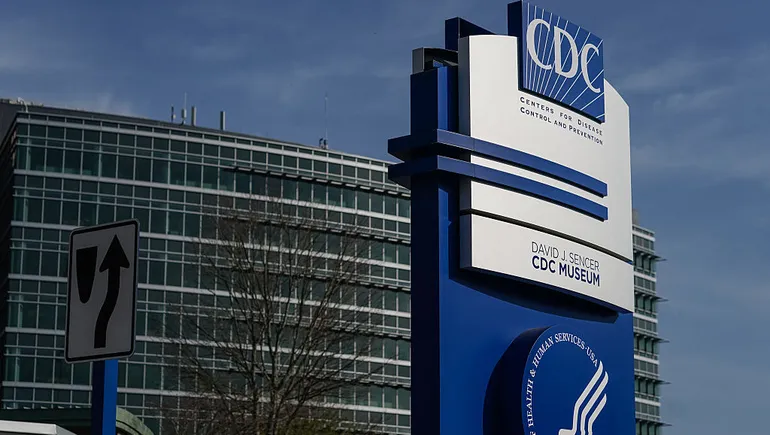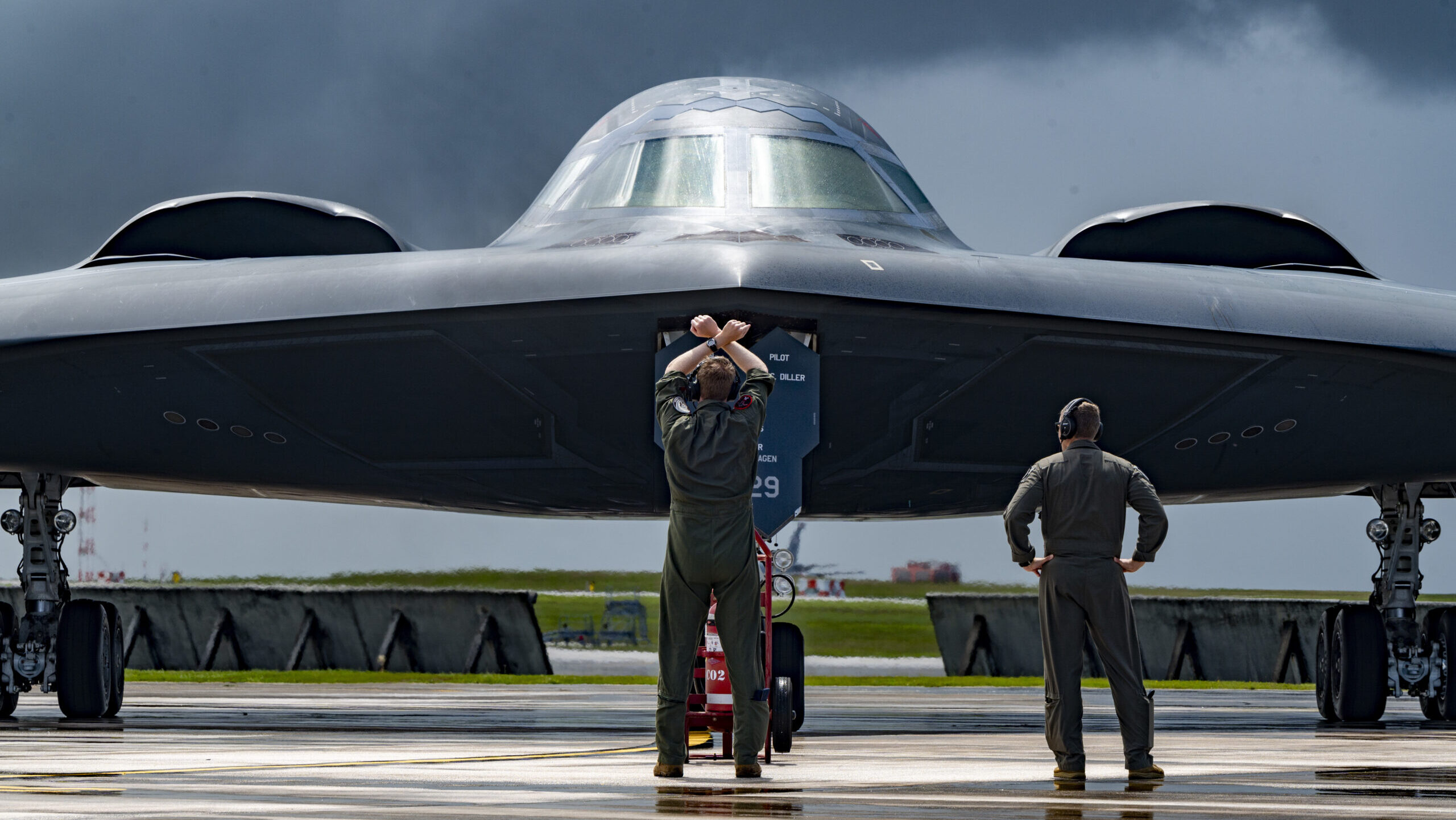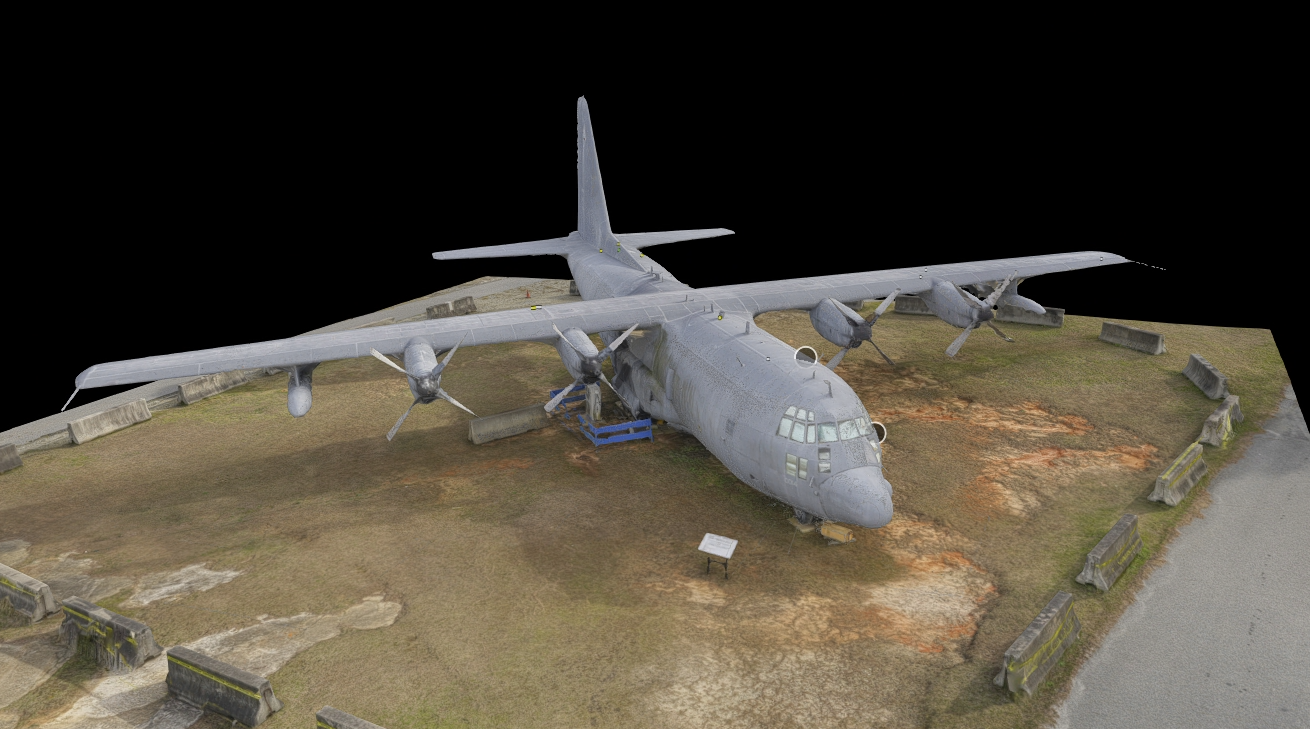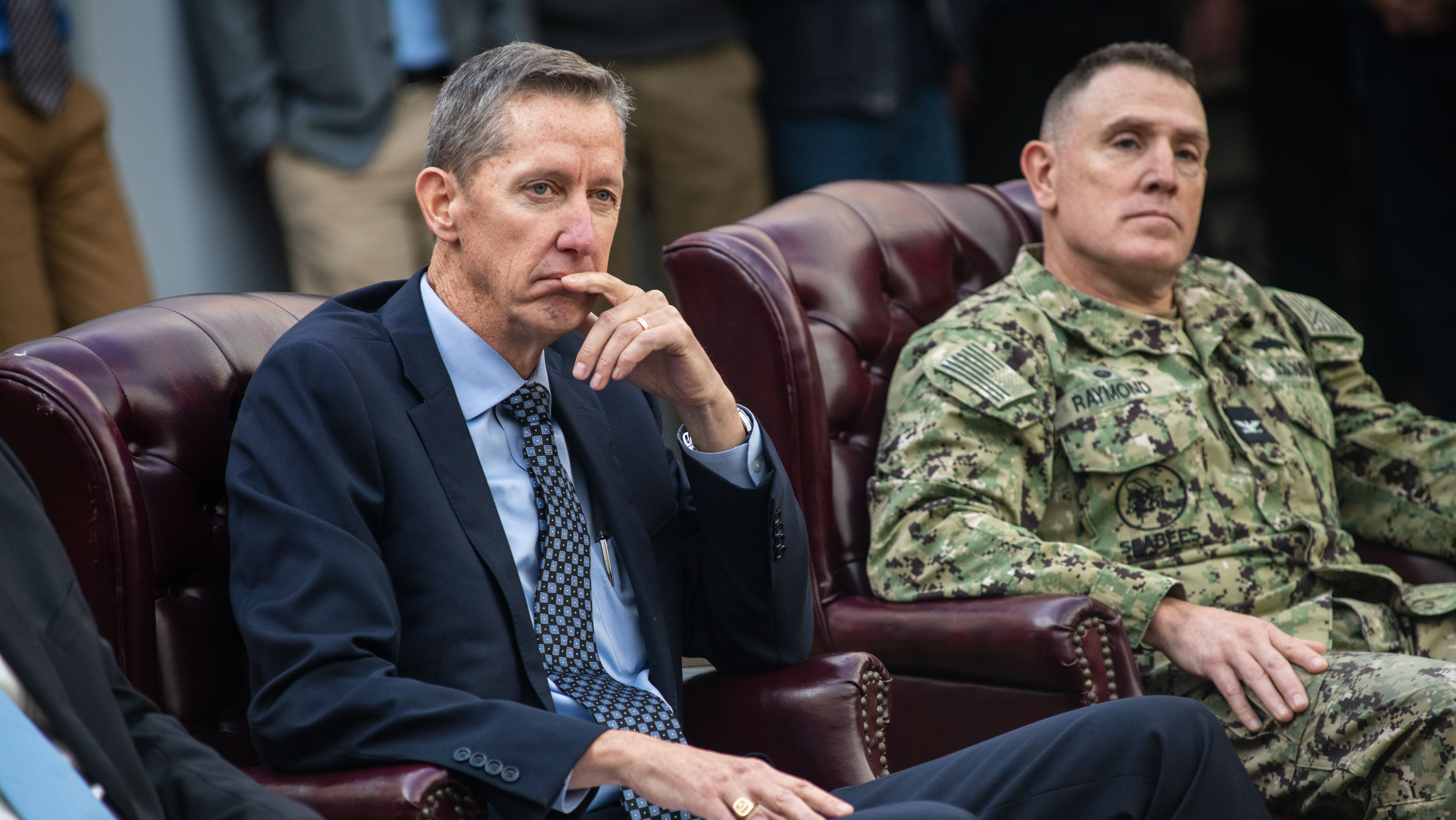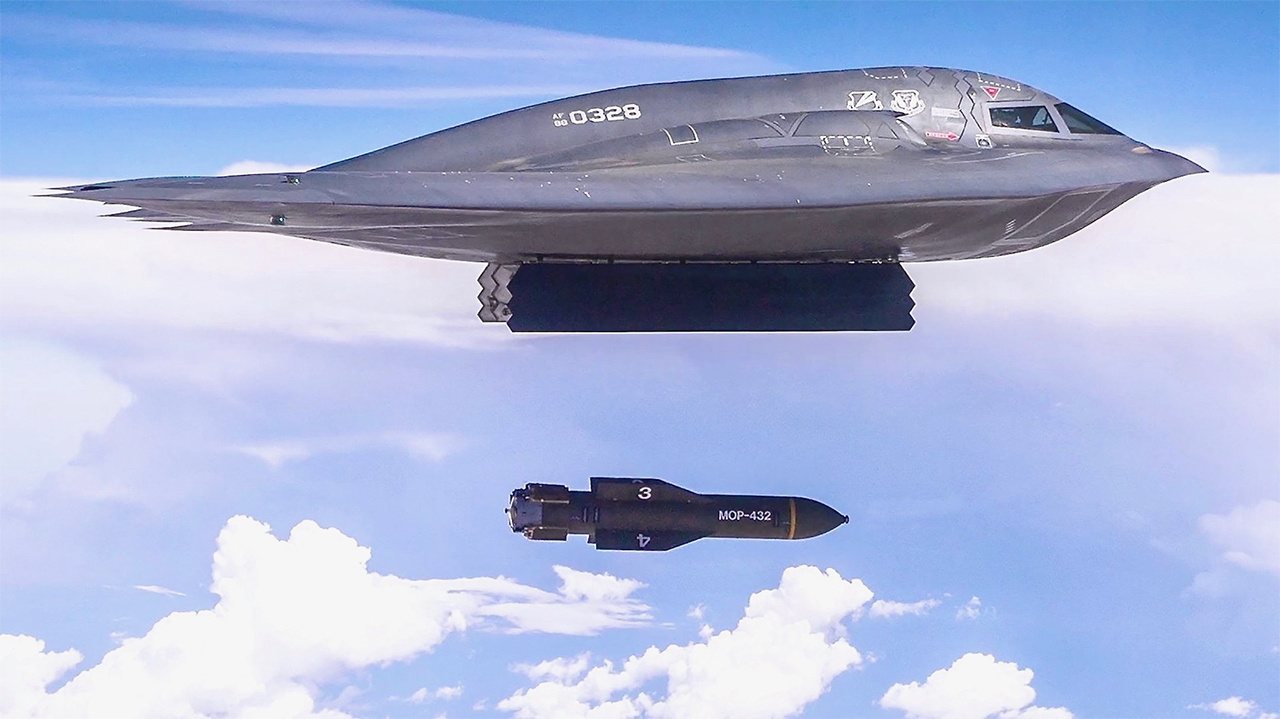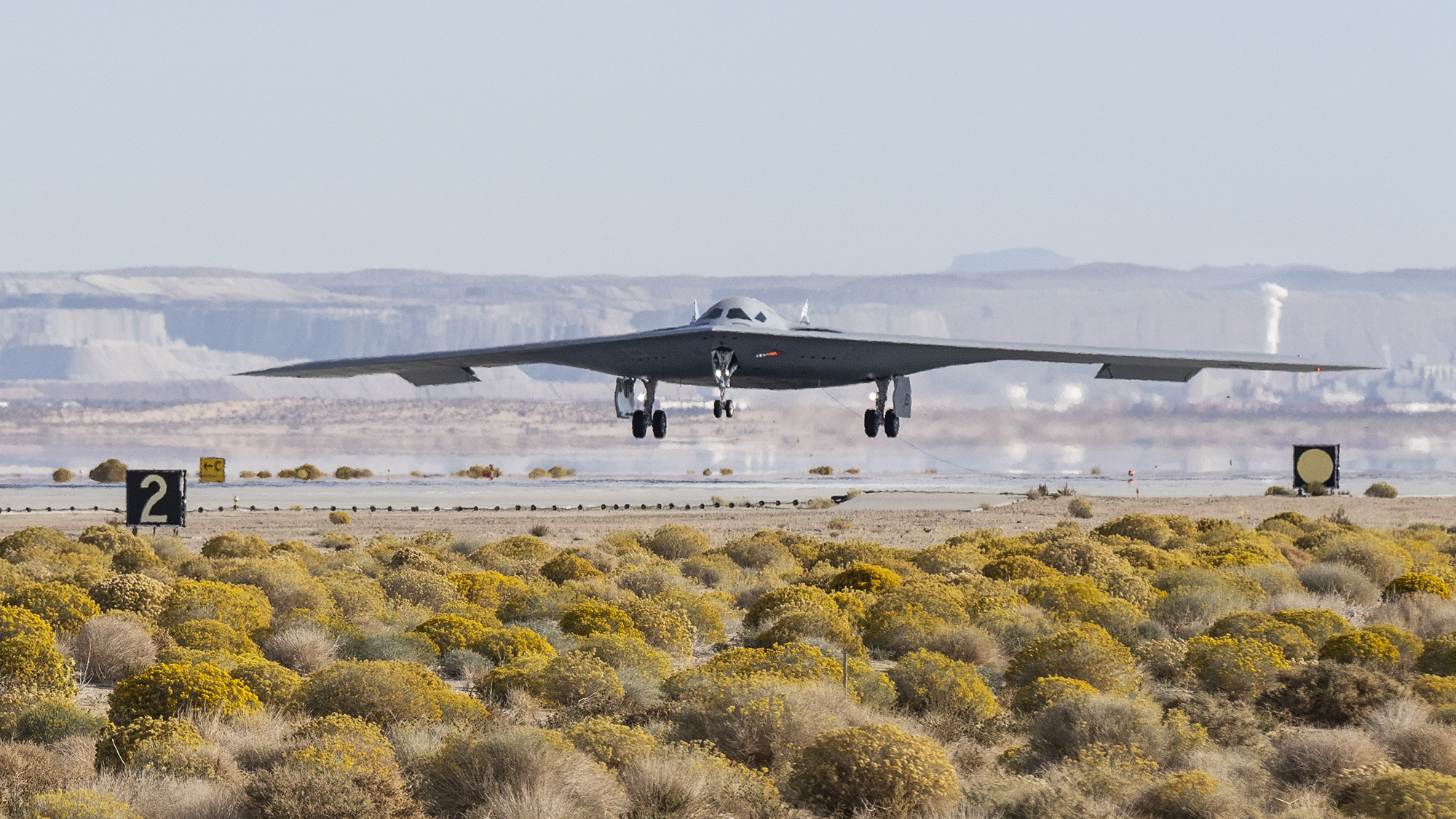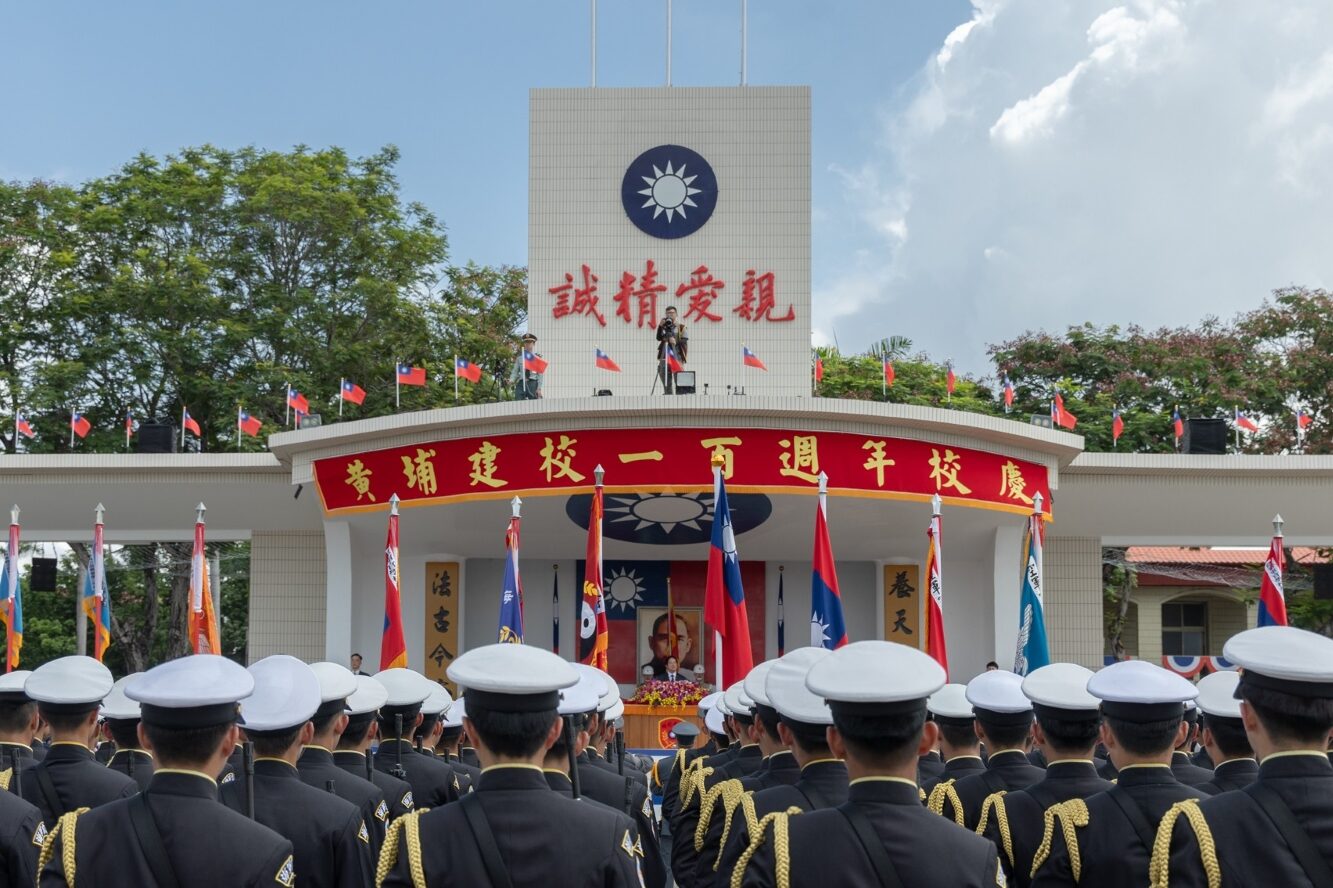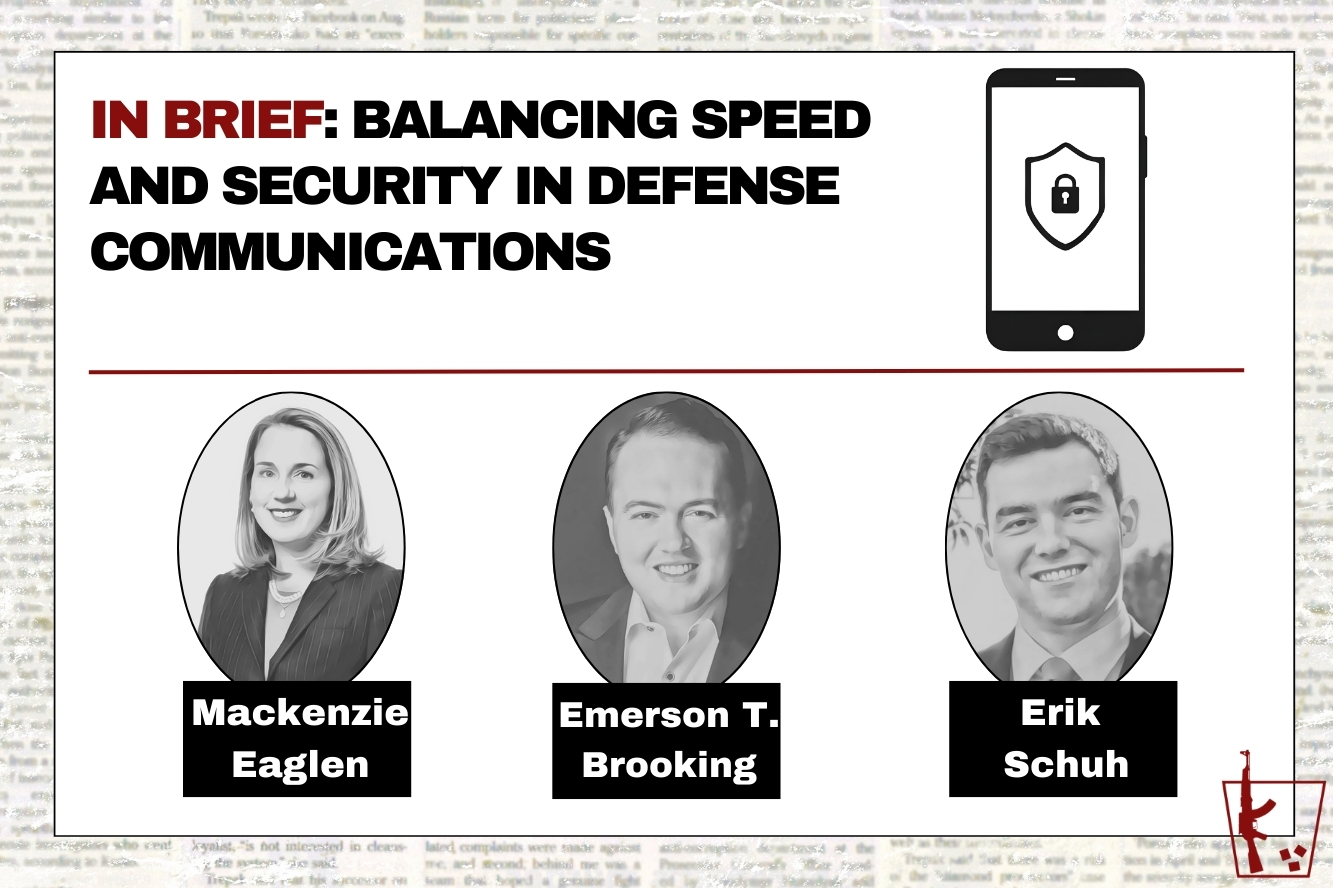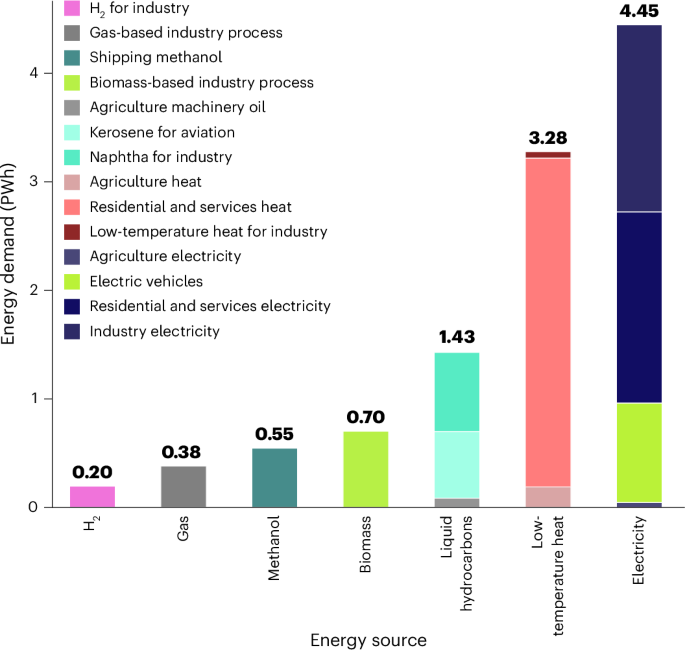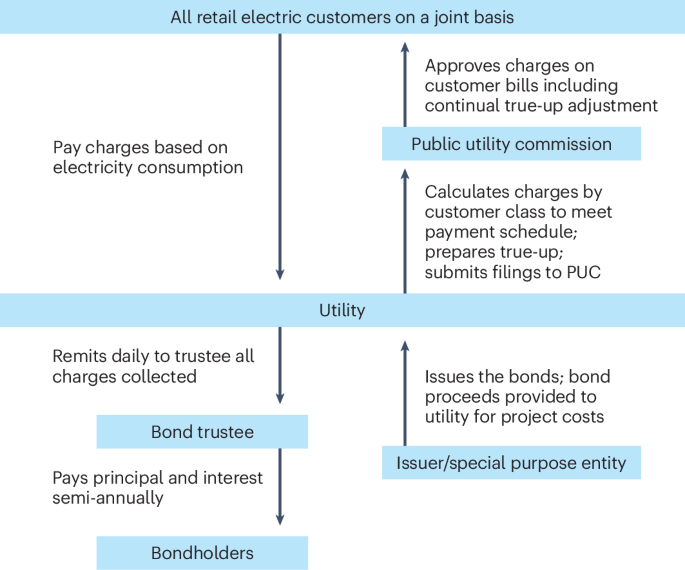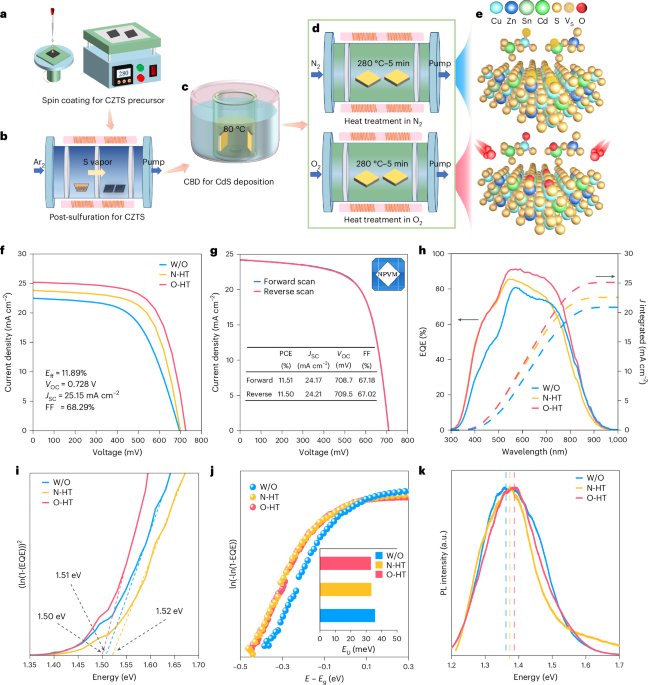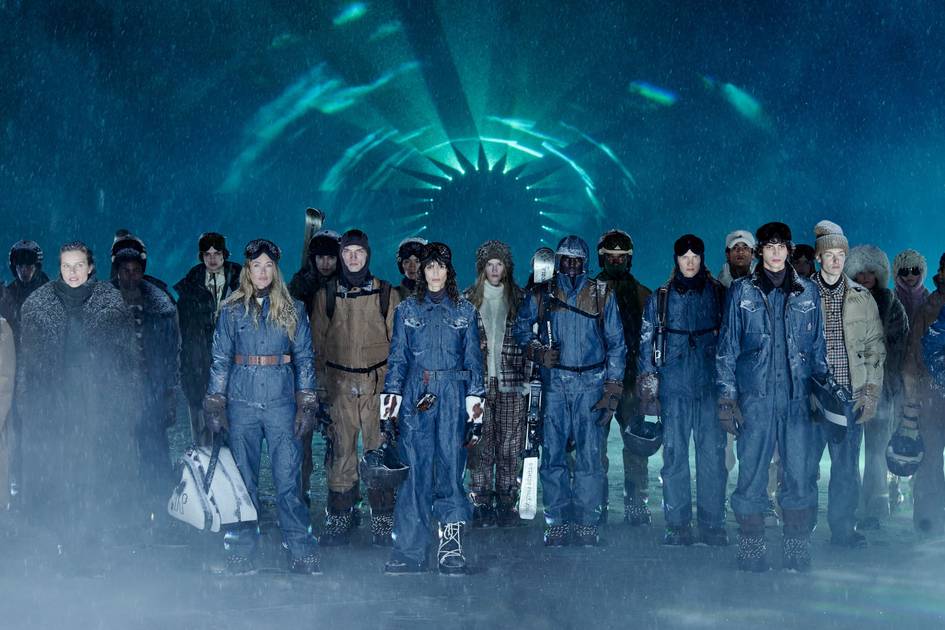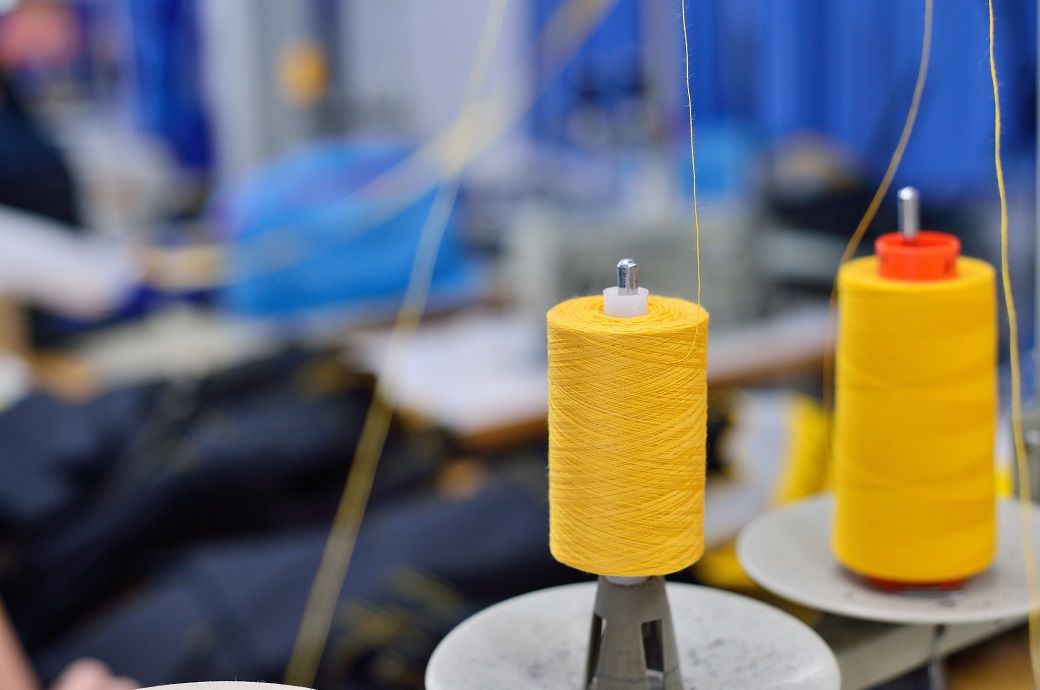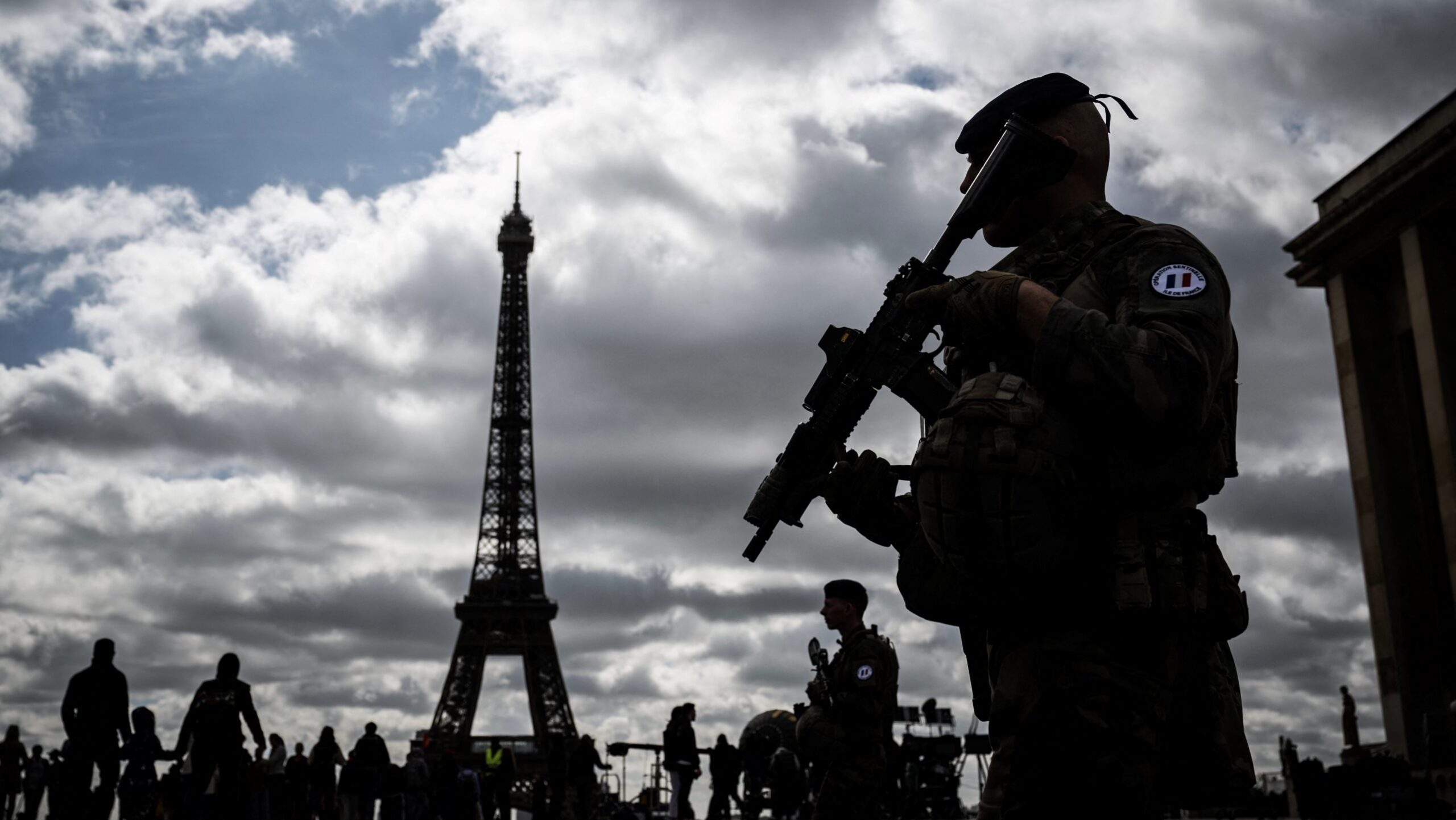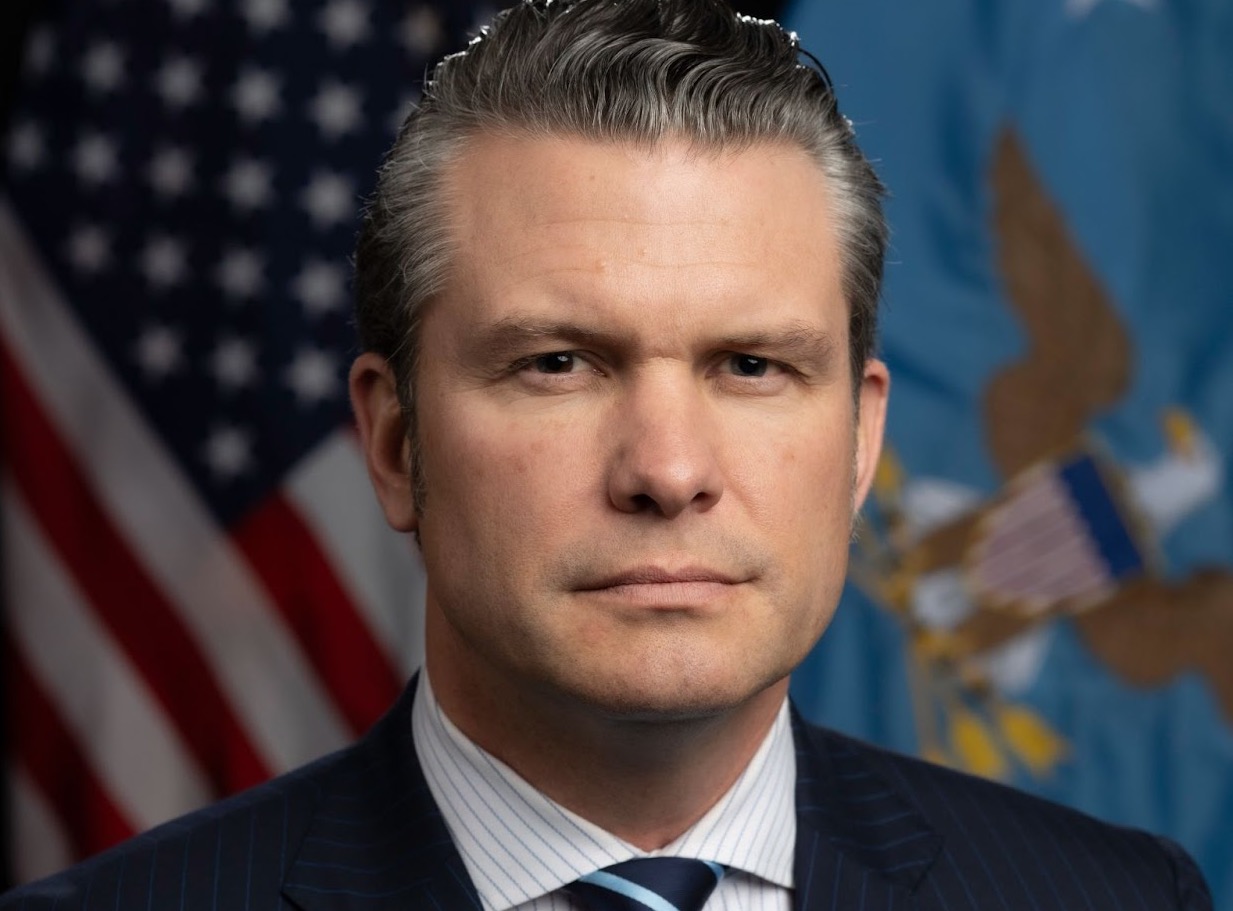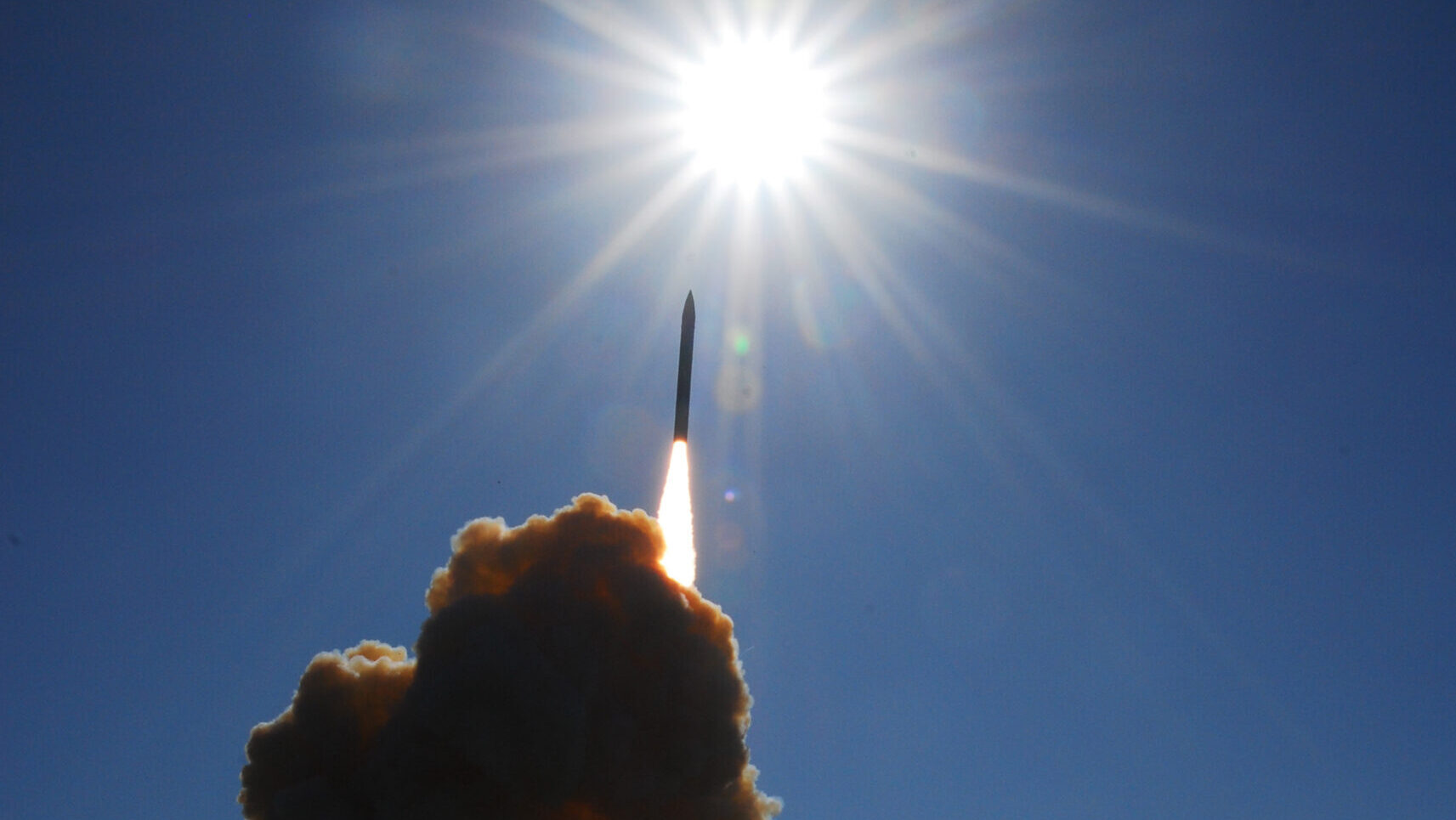Acting CYBERCOM chief says dual-hat NSA role key to ‘speed’ in cyberspace
Lt. Gen. William Hartman took over for Lt. Gen.Timothy Haugh last week after Haugh was controversially ousted by the Trump administration.
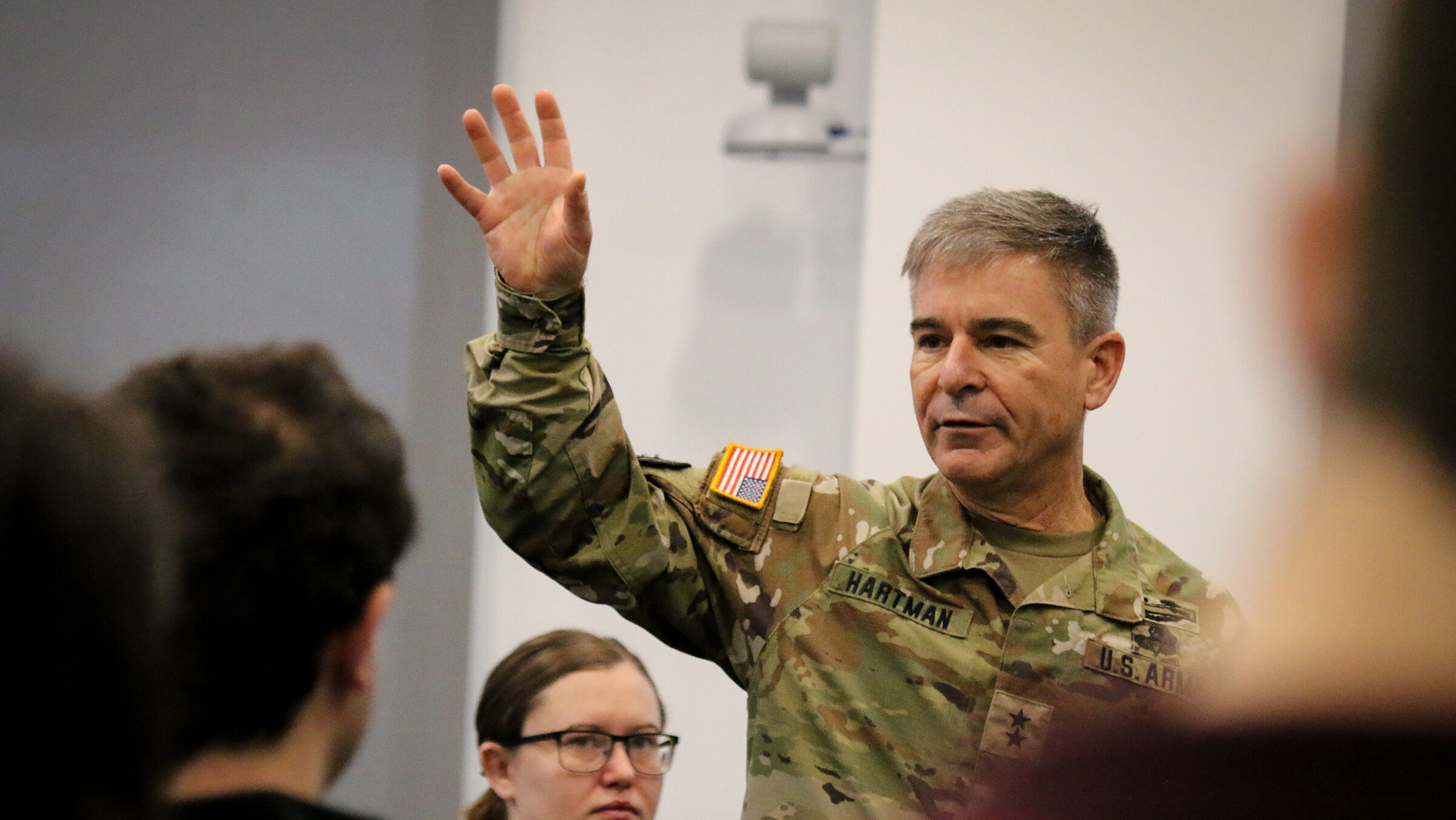

Maj. Gen. William J. Hartman, commander of the Cyber National Mission Force, speaks with U.S. and Israeli participants in exercise Cyber Dome VII at the Georgia Cyber Center in Augusta, Ga., Dec. 8, 2022. (Photo by Maj. Lindsay Roman)
WASHINGTON — The newly elevated acting head of US Cyber Command, Lt. Gen. William Hartman, appeared to defend a continuation of the dual-hatted role for the position in which he serves, also leading the National Security Agency, telling lawmakers it allows more “speed and agility” to take on adversaries in cyberspace.
“I’ve continued to see this partnership evolve and our ability to execute increasingly more precise operations is fundamentally because the dual hat allows me, in my current capacity, to move with the speed and agility and unity of effort that is required,” Hartman told a hearing of the Senate Armed Services’s Subcommittee on Cybersecurity Wednesday. “It also forces leaders across the organization to collaborate, to do the hard work and to provide the best options for the national security of the country.”
The three star added that the partnership between CYBERCOM and the NSA allows the US to achieve two key objectives: to “see and understand” what adversaries are doing, and to enable CYBERCOM and “other elements of the US government” to be able to defend US critical infrastructure and the Department of Defense’s Information Network, or DoDIN.
Hartman took over for Lt. Gen.Timothy Haugh last week after Haugh was controversially ousted by the Trump administration along with his NSA deputy Wendy Noble. Hartman previously served as the deputy commander of CYBERCOM.
The debate over splitting the dual-hat role has simmered for years, and some Trump advisors have reportedly backed the change. But in Wednesday’s hearing, subcommittee Chairman Mike Rounds of South Dakota came out forcefully for keeping the current set up, saying the leadership arrangement is of “absolute importance” in the “face of unexpected change.”
“There remains tight integration of cyber and intelligence operations thanks to alignment under a single leader. Such an arrangement remains paramount in future decisions of Gen. Haugh’s formal successor,” he said.
“In the wake of the various persistent cyber threats originating from the People’s Republic of China over the last two years, it is my firm conclusion that the importance of the dual hat is as important today as it has ever been,” he later added.
In a separate hearing on Tuesday, the Trump administration’s nominee for a key intelligence post in the Pentagon said that while he had no specific recommendation on whether the role should be split, it could be time to reassess.
“I do believe, just like in the private sector, that every organization to include the defense, intelligence and security enterprise, has to constantly assess itself to make sure it’s aligned with the right tools [and] organizational structure to maximize effects,” Bradley Hansell, nominee for the position of Under Secretary of Defense for Intelligence and Security, told the full Senate Armed Services Committee.
A spokesperson for the White House National Security Council did not immediately respond to a request for comment on the administration’s current position.
Haugh’s Firing Rankles Lawmakers
In addition to Haugh’s firing, also last week Sheila Thomas replaced Noble, Haugh’s deputy, as acting deputy director of the NSA, and Dennis Velez was selected to serve as the deputy commander of CYBERCOM, according to the NSA and CYBERCOM websites.
Lawmakers on Wednesday also took the opportunity to express their disdain over Haugh’s removal.
“Men and women capable of leading the National Security Agency and the United States Cyber Command are in short supply. Such leaders require years of experience to develop with deliberate and dedicated career focus,” Rounds, a Republican, said. “To put it more directly, we do not have enough of these types of leaders, and a loss of any one of them, without strong justification, is disappointing.”
Sen. Jack Reed, the top Democrat on the full Armed Services Committee, described Haugh’s dismissal as “sudden and inexplicable,” saying it was “disrespectful to his service, but also disrespectful to every military member in or out of uniform, and an indication that their service and sacrifice is in no way respected by this administration.”
Further, Sen. Jacky Rosen, a Democrat from Nevada and ranking member of the Cybersecurity Subcommittee, described Haugh’s firing as “abrupt and unjustified,” adding that it was “conducted in the dead of night with absolutely no consultation with Congress.”
As to reports that the firing may have been at the recommendation of rightwing activist Laura Loomer, Rosen said, “This action compromises CYBERCOM’s and the NSA’s ability to keep Americans safe.”
In a statement to the press last week, Chief Pentagon Spokesman Sean Parnell said, “The Defense Department thanks General Timothy Haugh for his decades of service to our nation, culminating as U.S. Cyber Command Commander and National Security Agency Director. We wish him and his family well.”





































































